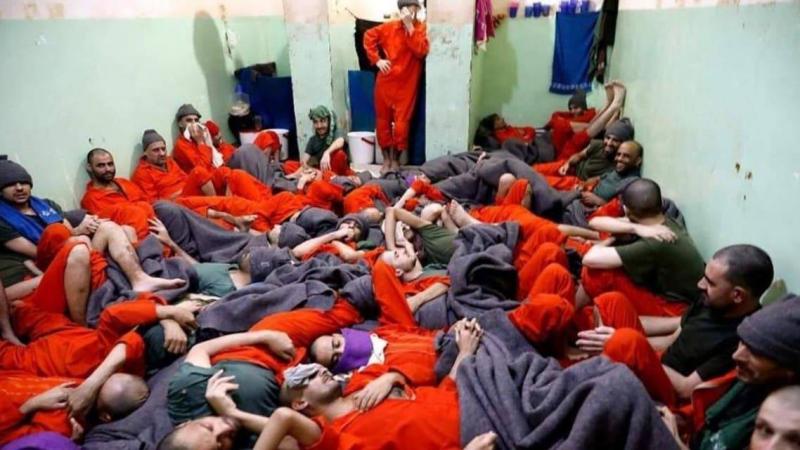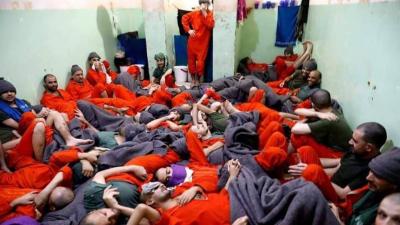The aftermath of the ISIS terrorist attack on the Ghuiran prison in Hasakah, northeastern Syria, last week continues, highlighting not only that terrorism has not yet been eradicated but also that it was a coordinated attack that underscores the most dangerous area where ISIS still has a foothold today. The largest prison in the world for ISIS members has brought back many warnings issued by the Syrian Democratic Forces about the risks of similar crises, confirming their inability to handle them despite tightening security measures around the facility.
According to a British report, what happened was a result of Western countries ignoring the danger posed by terrorist prisons. However, following the Hasakah attack, they can no longer make the same mistake, as reported by the Times. The report considered the forgetfulness regarding the existence of prisons housing such a large number of ISIS members since the announcement of its defeat years ago to be a "disgrace." It also noted that there are 12,000 prisoners under the custody of the Syrian Democratic Forces, including at least 2,000 foreigners, in addition to 70,000 women and children in guarded displacement camps.
The report stated that Britain, along with other European countries, turned a blind eye and refused to allow extremists and their families, including wives and widows, to return to their home countries even for trial. It further criticized former U.S. President Donald Trump's decision to withdraw half of the small U.S. ground forces, which number about 2,000, that assist in protecting the area controlled by the Syrian Democratic Forces in eastern Syria at the end of 2019. The report also pointed to the Turkish attacks on Kurdish-controlled territories and Russia's use of its veto against the entry of humanitarian aid through the border.
It is noteworthy that the ISIS terrorist organization launched an attack involving car bombs followed by violent clashes at the Ghuiran prison in eastern Syria last Thursday, aiming to free its prisoners. This prison is considered the largest and one of the most dangerous detention places for ISIS members in the world, and the clashes resulted in 200 deaths thus far. The Syrian Democratic Forces announced yesterday, Monday, that they stormed the main gate of the prison while several ISIS members were holed up inside, in an attempt to regain full control over it. The SDF confirmed in a statement that 300 ISIS fighters surrendered on Monday, while others were captured, armed with medium and light weapons and hand grenades. This bloody attack has once again brought to the forefront the ticking time bomb present in the region, involving detainees in prisons or their families in detention camps.




